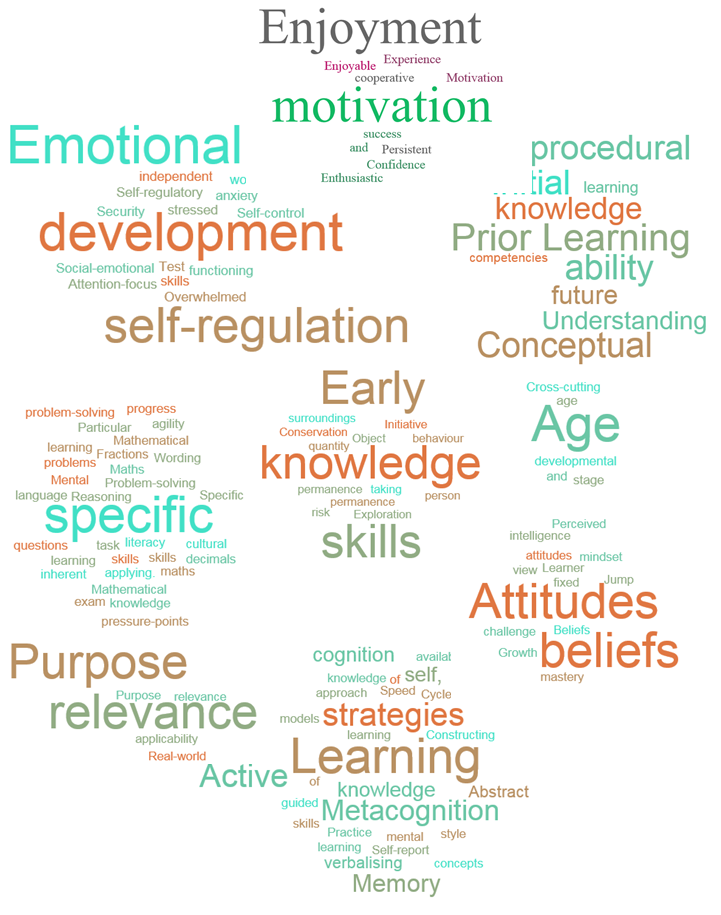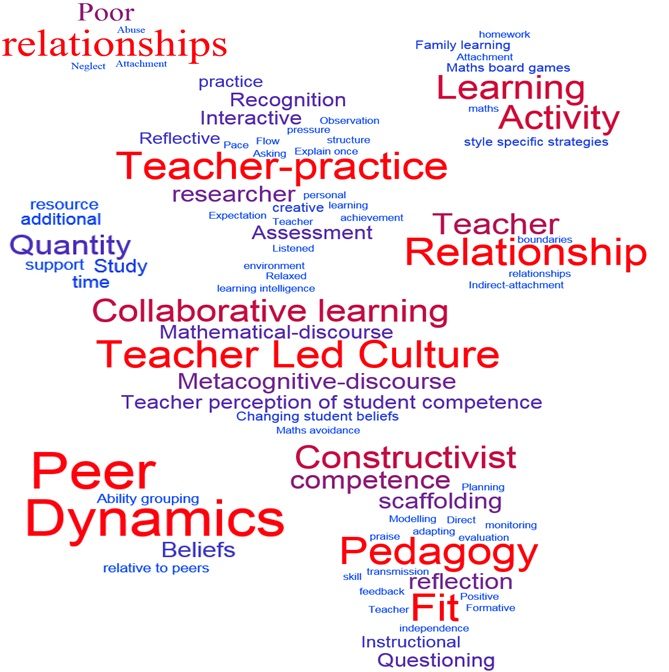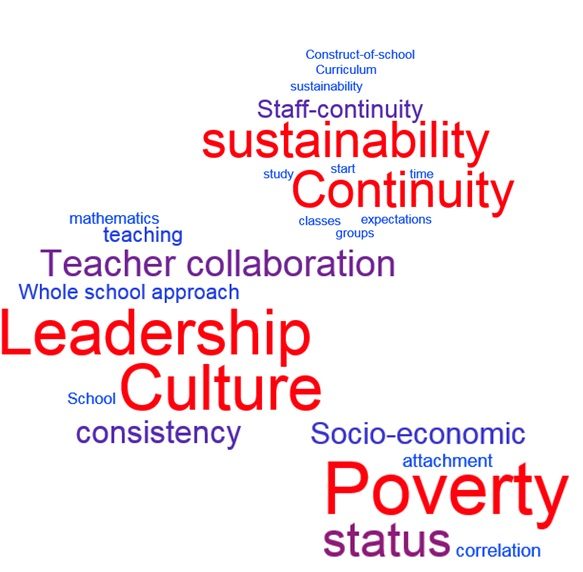The Four Educational Psychology Services of the FVWL Regional Collaborative have combined their research efforts to produce this ground breaking report on the psychological factors of numeracy.
We found a parallel with the national GIRFEC practice model and the Ecological System theory by Bronfenbrenner. The 94 factors were categorised into 20 clusters and then three categories.
Individual factors

Intersubjective Factors
 Contextual factors
Contextual factors
RECOMMENDATIONS
This meta-study finds that, given the complexity and multitude of factors that influence numeracy development and mathematical attainment, Councils, the Regional Collaborative and Scottish Government need to find ways of:
- promoting long term duration of teacher pupil relationships,
- promoting whole school consistency and beyond in the teaching of mathematics
- consider the impact that relationships and attachment style may have on pupils’ numeracy development
- ensure that teacher led innovations occur in a culture of learning, knowledge and research and with reference to the existing evidence base on effective interventions
- Encouraging parents to become more involved in contributing to the development of concepts skills and knowledge which are fundamental to math but not necessarily math specific such as risk-taking behaviour, metacognition, self-regulation and beliefs about intelligence and mastery.
- Actively encourage collective teacher efficacy in a context that promotes sustainability of improvement in evidence based ways.
This highlights the need for a cultural change with regard to numeracy education to include funding, employment and training arrangements that promote the long term relationship with staff and pupils in schools, effective mathematics teaching, and recognise the impact of relationships and attachment style on pupils’ numeracy development. Implementing improvement needs sustainability and implementation of improvement to be considered as important as the specific mathematic concepts and knowledge in encouraging children to learn maths.
Our final recommendation is that there is a need for debate about practice and improvement at a strategic and practice level within the Regional Collaborative and the four education authorities.


